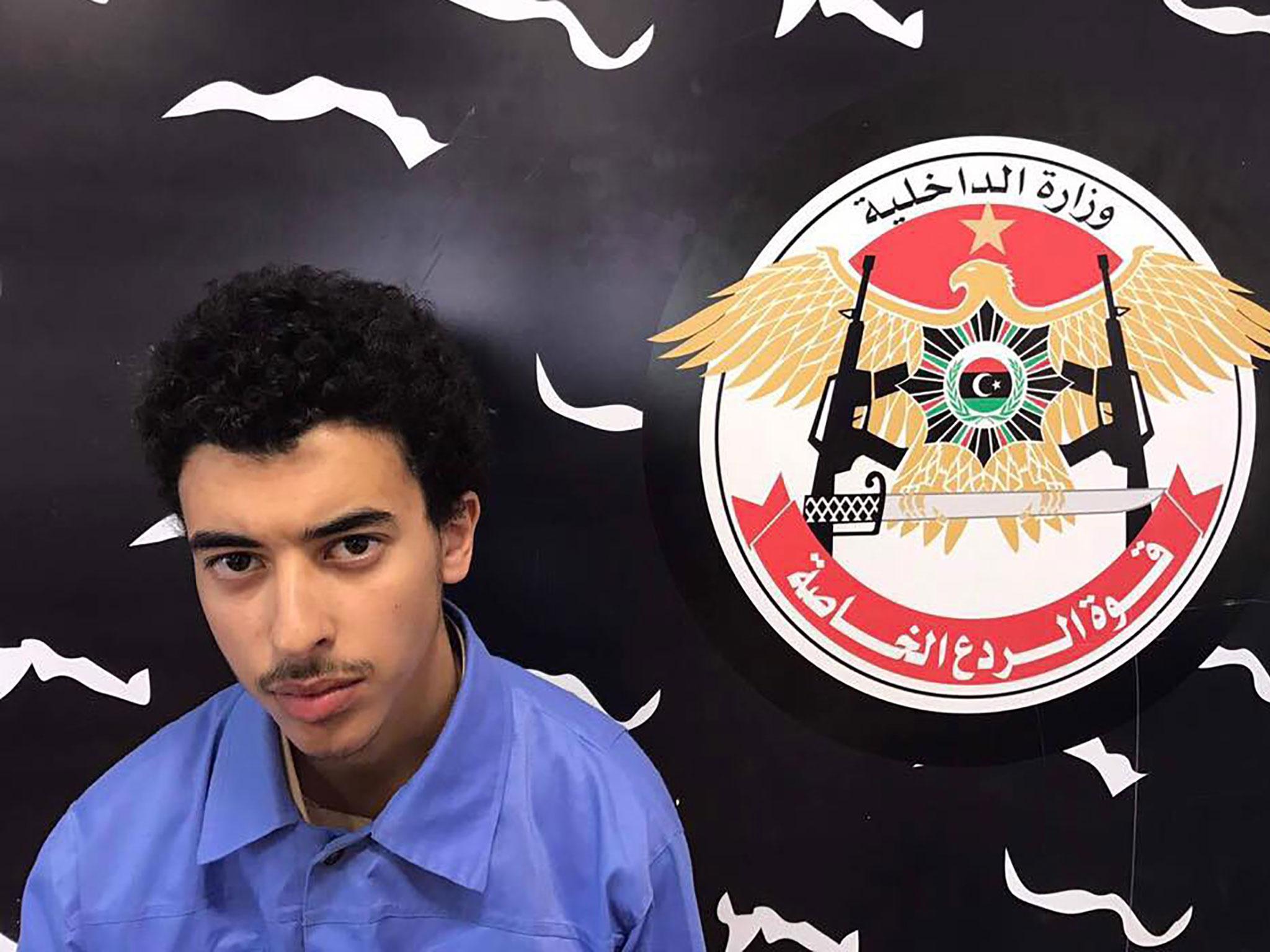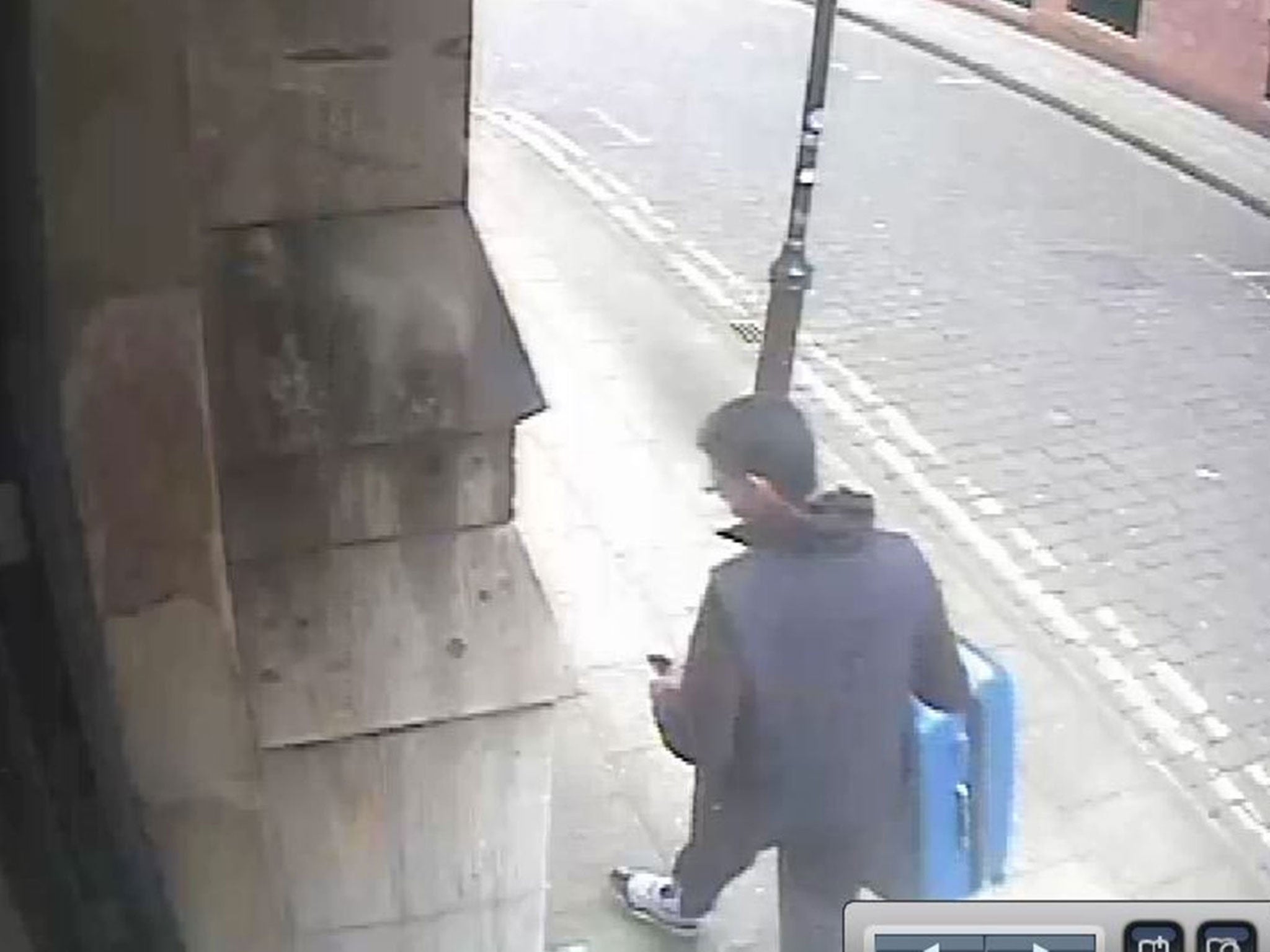Manchester attack: Salman Abedi's younger brother to go on trial in Libya over part in Isis-linked plot
Investigators say Hashim Abedi collected material for the bomb that left 22 dead at Manchester Arena

Your support helps us to tell the story
From reproductive rights to climate change to Big Tech, The Independent is on the ground when the story is developing. Whether it's investigating the financials of Elon Musk's pro-Trump PAC or producing our latest documentary, 'The A Word', which shines a light on the American women fighting for reproductive rights, we know how important it is to parse out the facts from the messaging.
At such a critical moment in US history, we need reporters on the ground. Your donation allows us to keep sending journalists to speak to both sides of the story.
The Independent is trusted by Americans across the entire political spectrum. And unlike many other quality news outlets, we choose not to lock Americans out of our reporting and analysis with paywalls. We believe quality journalism should be available to everyone, paid for by those who can afford it.
Your support makes all the difference.The younger brother of the Manchester bomber is expected to go on trial in Libya over his alleged role in the terror attack that killed 22 victims.
Hashem Abedi was arrested in Tripoli in the wake of his brother Salman’s atrocity in May, and now stands accused of aiding the Isis-linked plot.
The chief Libyan investigator, Asadiq al-Sour, told the BBC that Hashem is suspected of helping his brother, and collecting materials for the device.
He also lived in Manchester, and left the UK for Libya on the same day as Salman in April.
Libyan officials previously said Hashem told them he and his brother started supporting Isis (which claimed responsibility for the massacre) in 2015, “through the internet and some friends in the UK”.
The 20-year-old is expected to be in court within the next two months, and is being held in custody by the UN-backed Libyan Government of National Accord – one of two rival governments in the country.
Their father, Ramadan Abedi, was also arrested in May, but denied knowledge of the plot and has since been freed.
Another relative, Mohamed Younis Abedi, is in custody in eastern Libya after his credit card was allegedly used to buy bomb components, and Libyan authorities say they have passed on a list of people living in UK who should be questioned.
British police and intelligence officers have flown out to question the suspects, as investigations continue into the lead-up to the attack at Manchester Arena.
A spokesperson for Greater Manchester Police said no one has so far been charged in connection with the bombing, and none of the suspects initially arrested remain in custody.
Last month, Detective Chief Superintendent Russ Jackson, head of the North West Counter Terrorism Unit, said officers were “engaged” with authorities in Libya.
“We want to speak to Hashem Abedi, and I can now say we are currently engaging with the Crown Prosecution Service and the Libyan authorities,” he added.
Salman had returned from Libya just four days before blowing himself up in the foyer of Manchester Arena, as thousands of people poured out of an Ariana Grande concert, killing fans as young as eight.
Investigators were attempting to discover whether he had undergone terror training or had help to build the device, or whether he had trained himself using online propaganda.
Sources told The Times that Salman had watched instruction videos on YouTube, and downloaded material from other websites on how to make triacetone triperoxide (TATP).
The explosive, which was used in the Paris and Brussels attacks, and the 2005 London bombings, can be manufactured using uncontrolled shop-bought chemicals – but is extremely volatile.
The terrorist cell which carried out the attacks in Spain had been attempting to manufacture TATP at a house in Alcanar, but accidentally blew it up early, igniting a stockpile of gas canisters, destroying the hideout and killing those inside.
An attempted bombing at Brussels Central Station also used TATP, which was made by an experienced bombmaker in Isis’ previous attacks in Paris and the Belgian capital.
Experts told The Independent that Salman could have made a lethal quantity of the explosive in just 24 hours, but that direct training or experience would have sped up the process.
He is believed to have packed TATP in powder form inside a bag, surrounded by nails and shrapnel intended to inflict maximum death and injury.
Greater Manchester Police released CCTV images showing Salman moving around Manchester with a blue suitcase in the days before the attack, when he partially constructed the device in a tower block before completing it in an inner-city flat.

Investigators said he made “core purchases” for the device alone, and in the four days between flying back from Libya and launching the attack.
The 22-year-old, who was born in Manchester to Libyan parents, had left the UK for Libya in April after telling relatives he was making a pilgrimage to Mecca.
He had made numerous trips to the country after his parents returned to live there during the country’s bloody civil war, possibly fighting against Muammar Gaddafi’s soldiers alongside his father.
Islamist groups swiftly gained power in the conflict, where Isis has seized the opportunity to gain a foothold amid warnings the country could become a primary launch pad for terror attacks in Europe.
Among the countless militias battling in Libya is Katibat al-Battar al-Libi, an Isis special operations unit whose operatives are said to have met Abedi during his visits to Tripoli and the coastal city of Sabratha.
A retired European intelligence officer told The New York Times that Abedi kept in contact with the militants after returning to Manchester.
Katibat al-Battar al-Libi, which was originally formed by Libyan jihadis fighting in Syria in 2012, had attracted foreign fighters including the Paris attacks’ ringleader Abdelhamid Abaaoud, who was also linked to atrocities at the Brussels Jewish Museum, the Thalys train attack and several failed plots.
Some Battar brigade members moved back to Libya and set up terror training camps, focusing on weapons training and bomb-making. The camps count among their graduates the Isis gunman who killed 30 British tourists on a beach in Tunisia in 2015, and the Bardo Museum attackers.
Training camps used by “plotters actively planning operations against Europe” on the coast have been targeted by US air strikes, since it emerged that the Berlin Christmas market attacker was in contact with Libyan Isis militants.

Salman’s movements in Libya are not fully known, but local authorities believe had been planning his attack since December and had put him, his brother and their father under surveillance in the month before the bombing.
He had links with known extremists and gang members in Manchester, with friends remembering him as a “fun” teenager who drank and took drugs, before returning from a trip to Libya as a “different guy” and appearing increasingly religious.
Salman had made extremist remarks and flown an Islamist flag from his Manchester home, but not raised sufficient alarm to spark intervention by British security services.
He was an associate of Isis recruiter Raphael Hostey, also from Manchester, who was killed in a drone strike in Syria last year after allegedly radicalising and sponsoring militants.
Other prolific militants from Manchester include Abdalraouf Abdallah, who was jailed last for attempting to help fellow jihadis reach Isis territories. More than a dozen Isis supporters from the city have so far been convicted or killed.
Salman also had links with local gangs, and was reportedly devastated when his friend Abdulwahab Hafidah was murdered by a rival group last year.